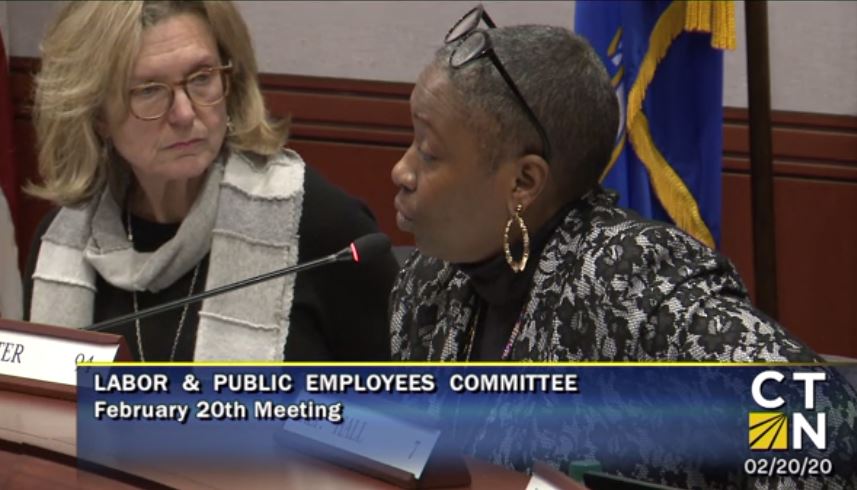Labor Committee Chairs Pass on Small Business FMLA Reforms

A key state legislative committee this week ignored bipartisan calls for reforming the state’s paid family and medical leave program by addressing the mandate’s disproportionate impact on small businesses.
Labor and Public Employees Committee co-chairs Sen. Julie Kushner (D-Danbury) and Rep. Robyn Porter (D-New Haven) did not include the reform measure on the committee’s Feb. 20 meeting agenda.

The Feb. 20 meeting was the deadline for the committee to raise bills for the current legislative session.
Legislators from both parties support changes to the far-reaching paid FMLA legislation the General Assembly passed last year that created the richest benefits of any leave program in the country.
Rep. John Hampton (D-Weatogue) sent a letter Feb. 10 to Labor Committee leadership requesting a series of changes to the law.
“While I appreciate the merits and goals of the program, I believe these changes would help to make paid FMLA more workable, especially for small businesses,” he wrote in a letter to the committee chairs and ranking members Sen. Craig Miner (R-Litchfield) and Rep. Joe Poletta (R-Watertown).
“The proposed changes should include making it optional for companies with 30 or less employees, reinstate the time of service requirement to qualify for benefits, cap repeated usage of the program at 35 weeks over five years, and require intermittent leave be taken in full day increments.”
Private Sector Mandate
The paid FMLA mandate applies to all private sector businesses with as few as one employee.
From Jan. 1, 2021, the wages of all employees in the state—excluding unionized state or municipal workers—will be taxed to fund the program.
After Jan. 1, 2022, workers will be eligible to take 12 to 16 weeks of paid leave to care for their own or extended family members’ illnesses or injuries.
“Lawmakers should be prioritizing policies that promote job creation. Unfortunately, that’s not what we’re seeing in the Labor Committee.”
CBIA’s Eric Gjede
The mandate’s impact was the focus of a number of small business forums hosted by legislators—including Senate Minority Leader Len Fasano (R-North Haven) and state representatives Vincent Candelora (R-North Branford), Craig Fishbein (R-Wallingford), and David Yaccarino (R-North Haven)—last summer and fall.
Employers told lawmakers the mandate adds to the already high cost of doing business in the state and will force workforce reductions, production cuts, relocations, and employee benefit changes.
Those concerns were reflected in CBIA’s 2019 Survey of Connecticut Businesses, which found that 77% of employers believed paid FMLA negatively impacts their ability to grow and create jobs.
Small Businesses ‘Need Relief’
CBIA’s Eric Gjede said “Connecticut small businesses are operating in an increasingly difficult environment and they really need the legislature to provide relief.”
“The 2019 legislative session was a tough one for small businesses as these one-size-fits-all mandates like paid FMLA make it extremely difficult for them to compete,” he said.
While the Labor Committee did not take up paid FMLA reform, it will pursue a number of anti-employer measures this session, including another attempt to suppress workplace communications and a bill restricting shift scheduling.
“Given the state’s private sector job growth trailed most of the region and country last year, lawmakers should be prioritizing policies that promote job creation and business investment,” Gjede said.
“Unfortunately, that’s not what we are seeing in the Labor Committee.”
For more information, contact CBIA’s Eric Gjede (860.480.1784) | @egjede
RELATED
EXPLORE BY CATEGORY
Stay Connected with CBIA News Digests
The latest news and information delivered directly to your inbox.


